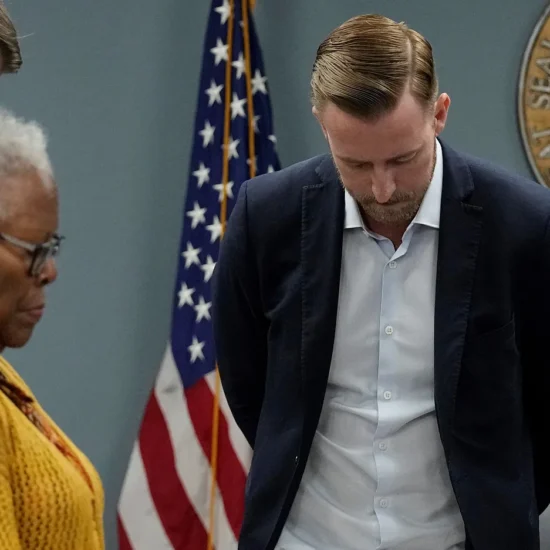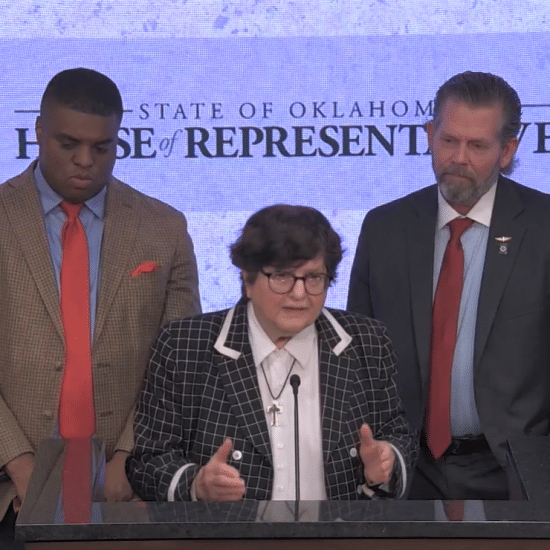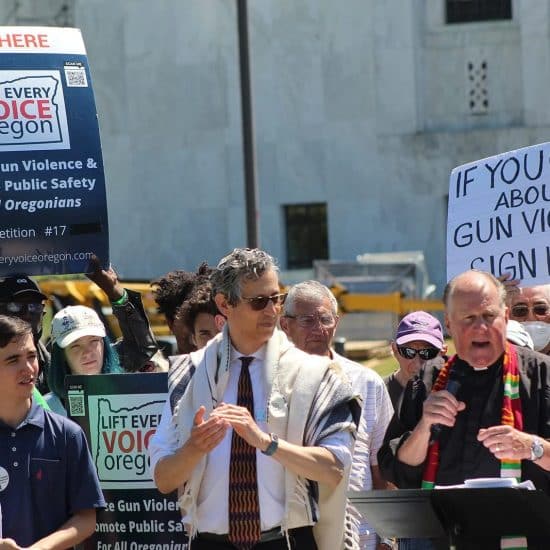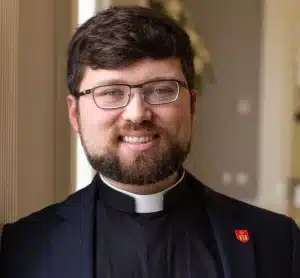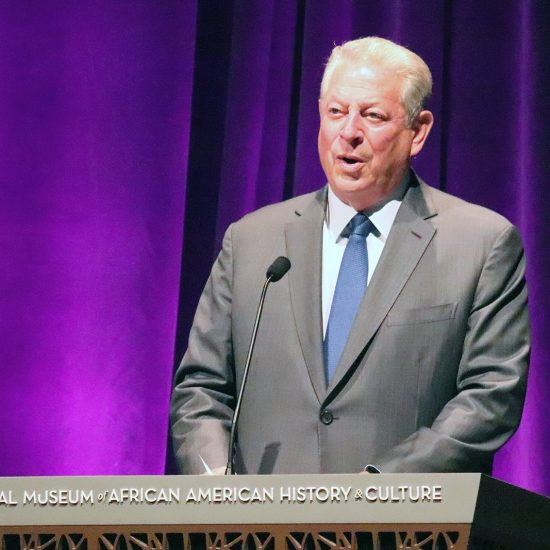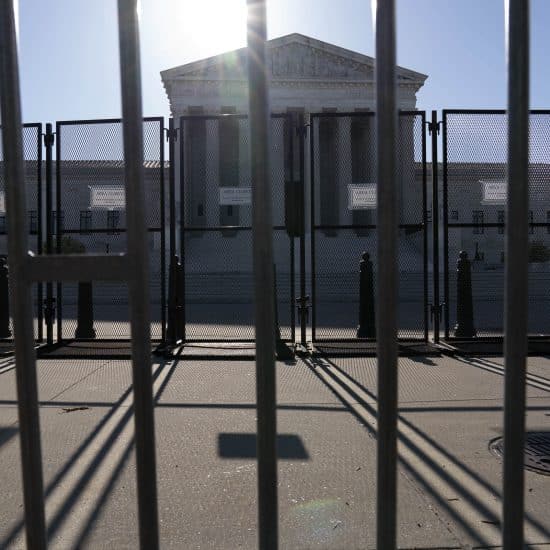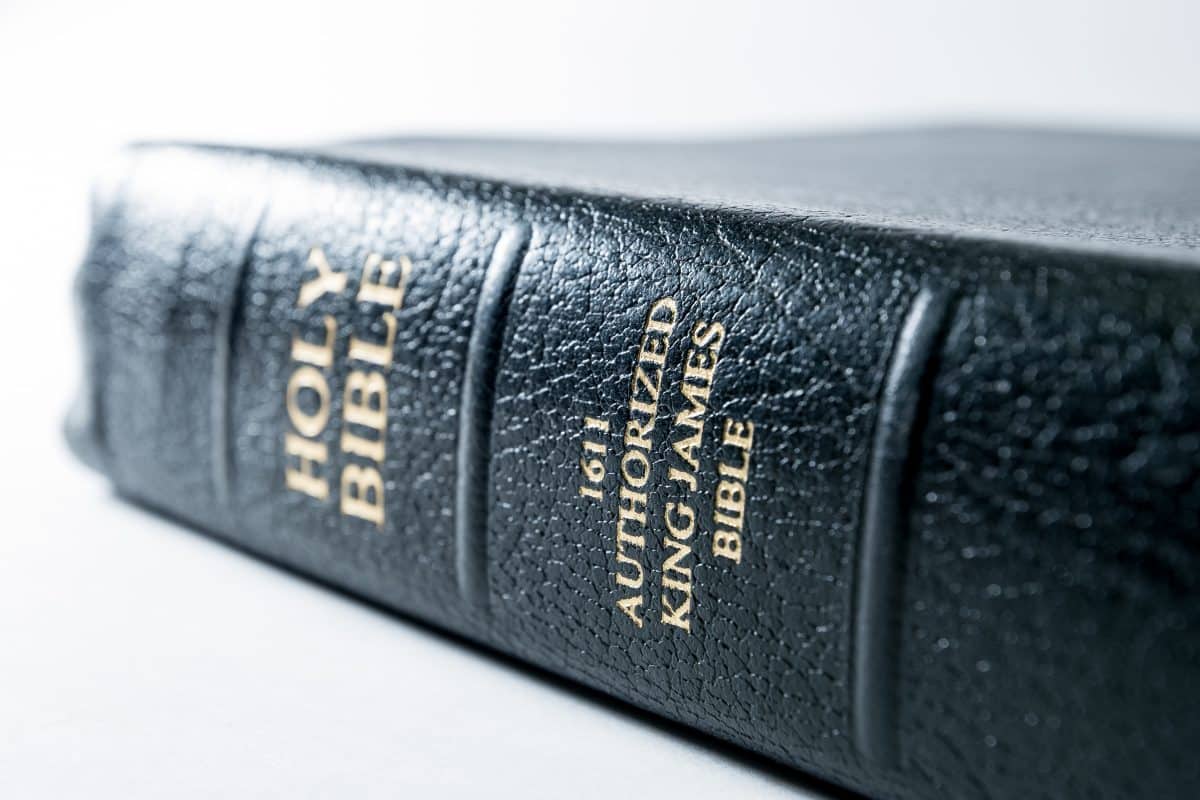
In 1612, Thomas Helwys published the first book in English arguing for true religious liberty for all people. One of the two founders of the first Baptist church (of the world) formed just three years earlier, Helwys went beyond the normal demand that persecution cease towards one’s own sect to insist on religious liberty for everyone, even Jews, Muslims, and atheists. Radical stuff even in a radical age.
He then sent the King of England a copy of A Short Declaration on the Mistery of Iniquity that included a blistering critique of state-church alliances, like the one enjoyed by the Church of England. Helwys even scrawled a note inside: “The King is a mortal man, and not God, therefore he hath no power over the mortal soul of his subjects to make laws and ordinances for them and to set spiritual Lords over them.”
The king didn’t like that too much. He threw Helwys and some other Baptists in jail, where Helwys died a few years later. The king kept ruling over both the nation of England and the churches in the land for another decade. Who was this royal figure?
King James.
Perhaps you’ve heard of him. Maybe check an old Bible’s cover for a reminder. As Helwys in 1611 crafted his Mistery of Iniquity to call for religious liberty for all that led to his persecution and death behind bars, King James released the “authorized” version of the Bible. Apparently “His Majesty,” metaphorically smited on thy right cheek by Helwys, missed the admonition in Matthew’s Gospel to “turn to him the other also.”
So, we find it a bit ironic that a Baptist in Oklahoma introduced a bill in the state legislature this month to mandate the use of the King James Bible as the translation for use in public schools. Senator George Burns wants classes that teach the Bible as a historical text to no longer primarily use a multi-translation book. Instead, his legislation requires that “the Authorized Version of the Bible, which is more commonly known as the King James Version of the Bible, shall be the primary text of the course.” In addition, his bill making the KJV the Oklahoma Authorized Version includes a provision that “each school district library in this state shall include the Authorized Version of the Bible, more commonly known as the King James Version of the Bible.”
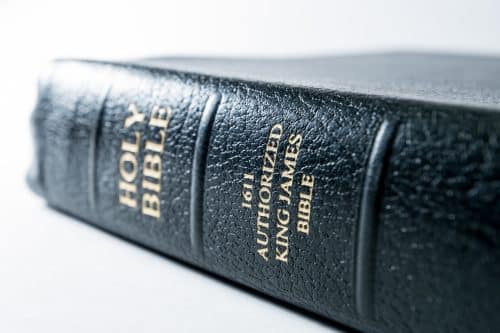
Burns’s bill doesn’t just mandate a specific translation. It also attempts to marshal state power to force his religious beliefs on public schools. He’s a member of Lukfata Baptist Church in Broken Bow, which includes in its 4,265-word statement of beliefs one bolded, underlined sentence: “The King James Version of the Bible shall be the official and only translation used by this church.” It then adds for clarity, “Special note: the King James Version and the New King James Version are two different translations, and only the King James Version will be the accepted translation used by Lukfata Baptist Church.” No word on if the pastor preaches in Shakespearean verse (or if they’ve decided to go full 17th century and try to survive a plague without vaccines).
Burns’s move would make King James proud but likely spark a harsh response from his Baptist ancestors. Trying to codify one’s own convictions into law is just the kind of state infringement of religious liberty that would inspire Helwys or other historical Baptist figures like Isaac Backus to protest even to the point of imprisonment (though we’ll note that Burns isn’t proposing to send any wayward teachers or librarians to jail — though others have already gone there).
While the Sooner State considers this extreme and clearly unconstitutional bill, lawmakers in other states have similarly sought to to authorize official Bible classes in public schools. In this issue of A Public Witness, we study the political effort behind the Bible blitz. We also quiz this movement to consider the pedagogical and religious problems with such legislation.
Legislating God
Dismissing Sen. Burns’s legislative antics as insignificant would be a mistake for at least two reasons. First, seven states have already passed similar bills (minus the King James requirement). Second, the introduction of these measures is not an accident. Rather, it is part of a concerted campaign to use political power and public resources to teach sectarian beliefs.
Originally deemed “Project Blitz,” the effort involved a constellation of individuals and groups on the Christian Right who saw state legislatures as an easy avenue for chipping away at church-state separation. Borrowing the approach of conservative business interests and others, the campaign provides state legislators with model legislation to be introduced on a range of topics as innocuous as license plates to more contentious measures around human sexuality.
“It’s kind of like whack-a-mole for the other side; it’ll drive ‘em crazy that they’ll have to divide their resources out in opposing this,” is how the controversial, self-styled historian David Barton described the strategy. “[The model bills are] going to be things that people yell at, but they will help move the ball down the court.”
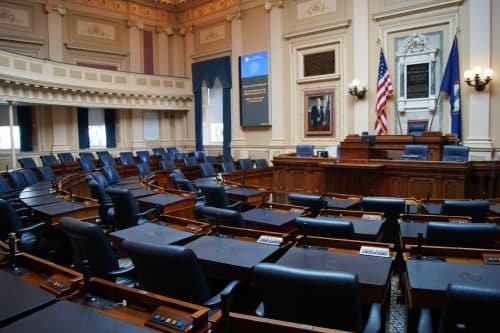
Virginia House of Delegates. (Brian Kaylor/Word&Way)
Perhaps due to the negative publicity generated by the push, Frederick Clarkson — the researcher who helped first bring it to light — documented a more covert approach by the coordinating groups over the last two years. Critics see that reality as both a sign their pushback is working and cause for continued alarm.
What remains quite noticeable is the impact on our public life. From supportive tweets by then-President Donald Trump to teachers in Kentucky teaching moral lessons explicitly drawn from Christian scripture, the foundational idea that public education is offered to everyone regardless of identity or creed remains under concerted attack.
Bryan Kelley, an education policy researcher, told us that “bills proposing Bible classes be taught are inherently controversial to some extent, and some are definitely more controversial than others.”
“It’s also obvious that states introducing bills to teach the Bible in public schools aren’t doing the same thing with the sacred texts of other faiths and that Bible courses can certainly be taught poorly/unconstitutionally,” Kelley added.
He cautioned that while there’s not “a particularly big wave or prominent trend in state legislatures” yet this session, it could be an important area to watch amid the “surge” of bills looking to ban critical race theory or other topics from public school curriculum.
Help sustain the ministry of Word&Way by subscribing to A Public Witness!
Ongoing Push
Two “Bible literacy” bills are pending before committees in Missouri this year. For the third time in four years, Republican Rep. Ben Baker filed a bill to encourage schools to create “an elective social studies course” to “teach students knowledge of biblical content, characters, poetry, and narratives that are prerequisites to understanding American history and culture, including literature, art, music, mores, oratory, and public policy.” And in the other chamber, Democratic Sen. Karla May introduced for the second year in a row an identical bill.
The Missouri bills claim that such a class on the Bible “shall not endorse, favor, or promote, or disfavor or show hostility toward, any particular religion or nonreligious faith or religious perspective.” Yet, both sponsors are Christians and have been outspoken in previous years about their desire for more people to understand and follow the Bible. Baker is even a lay Assemblies of God minister and former dean of students at Ozark Bible Institute (he was also the sponsor of the unsuccessful bill we referenced earlier to imprison librarians). Their passion for the Bible rightly comes not from its historical impact but from their own faith.
Both versions of the Missouri bill also insist that a student in the course “shall not be required to use a specific translation,” though as Senator Burns in Oklahoma shows that provision would be vulnerable to an amendment in a later legislative session.
Back in 2010, Democratic Gov. Brad Henry signed into law Oklahoma’s bill encouraging “Bible literacy” classes. This put the state well ahead of the curve, predating the nationwide “Project Blitz” push on this topic by several years. Now the decade-old status quo appears no longer good enough.
“Our Founding Fathers relied heavily upon the scriptures in the formation of our country, and the Bible they used was the King James Bible, which makes it an important historical document,” Burns argued as he introduced his bill to amend Oklahoma’s Bible classes.
Burns insisted to us that he’s “not pushing mine” when it comes to translations but pushing “the most historical document as far as the Bible goes.” He added that he reads “several different versions,” but noted his pastor helped him “put this together.”
“I’m mainly doing it to preserve the Bible,” he told us.
Burns also connected his bill to the threat he sees from critical race theory, especially because he thinks people pushing critical race theory will also oppose the KJV Bible.
“You’ve heard of critical race theory going on right now, right? In Oklahoma, we’re trying to protect ourselves from the federal government wanting to destroy the 10 Commandments, all the monuments of our presidents, and that type of stuff,” he explained. “It’s our history. They’re trying to get rid of our history.”
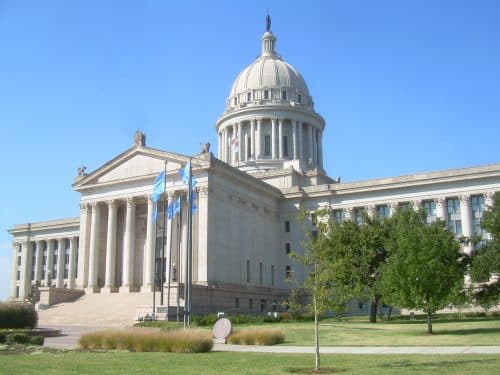
Oklahoma Capitol. (Caleb Long/Creative Commons)
Burn’s bill would also amend current law so that “an ordained or licensed member of the clergy may be selected by the school district to teach a course offered pursuant to this section.” We seem to be moving away from the claim these courses are just about historical influence and more accurately acknowledging this is about using the public school system to indoctrinate and evangelize.
That’s why Amanda Tyler, executive director of Baptist Joint Committee for Religious Liberty, told us “these ‘Bible literacy’ courses promote Christian nationalism.”
“The idea that one must know the Bible in order to be an educated American — silently implying that other religious texts are not as important — perpetuates that insidious ideology that merges American and Christian identities,” Tyler explained. “If a public school wants to teach about religion in order to further religious literacy, there is a better path: use a religiously-neutral curriculum that includes diverse religious texts. In practice, these ‘Bible literacy’ courses could easily morph into devotional religious instruction, which violates a fundamental principle of religious freedom: the state should never try to do the job of the church.”
Lawmakers in other states where the Bible blitz has thus far failed haven’t yet filed new bills this year. But it’s early in some legislative sessions, and the pandemic has altered the focus of many of the church-state fights.
There is, however, a bill in Mississippi from a Democratic state representative (and Sunday School teacher at a Baptist church) to name the Bible as the “official state book.” A similar bill failed (again) last year in Tennessee after being pushed by a Republican state representative (and former Baptist pastor). If both states were to pass such a resolution we might need old Solomon to help us split the baby for custody. While King James would likely be sad to see we gained independence from England, we suspect he’d probably be pretty pleased with these legislative efforts.
Get cutting-edge analysis and commentary like this in your inbox every week by subscribing today!
Problem of Biblical Proportions
One of us (Brian) has testified six times over the last three legislative sessions against these “Bible literacy” bills in the Missouri legislature — and we suspect he’ll be back at the state Capitol soon for another round. In addition to invoking Thomas Helwys and other Baptists, his testimony noted that what the bills push for cannot truly be implemented without violating the First Amendment. Here’s the core of that testimony about what’s wrong with these bills.
First, the legislation singles out the Bible as the sole sacred text worthy of study in public school classrooms. Are there no other religious writings of significant historical and literary influence? A course surveying the impact that a variety of religious texts have had on our culture and society would make far more sense, given the stated purposes of the legislation. To single out the Bible as the only one worthy of study seems designed to sneak Christian teaching into public school classrooms. This looks more like evangelism than education.
Second, you have to determine what Bible will be taught. The proposed bills in Missouri say that “no requirement shall be made by the district on the text translation students must use.” And that’s the standard in Oklahoma (unless Senator Burns gets his KJV-only way) and other states that have already passed similar legislation. But those pushing these bills don’t seem to understand that the very concept of the Bible remains contested. One teacher could not possibly teach a course on “the Bible” to students who are simultaneously reading from the Jewish Tanakh (that doesn’t include any of the New Testament), the 66 books in most Protestant Bibles, the 73 books considered authoritative by the Roman Catholic Church, or the 80 books included in the Orthodox Church of America’s Bible.
If a teacher picks just one list of books as “the Bible,” the state will be choosing winners and losers when it comes to religion and faith. But to teach all of the various lists as books of the Bible is to undermine the faith teachings of parents and churches that pick a particular list for profoundly religious reasons. Either the supporters of this bill have not considered this problem or they are making an assumption that their preferred version of the Bible is most likely to be used — as seen by the fact that the bills only use explicitly Christian language to describe the Hebrew scriptures.
A related problem is the identity of the teacher leading the course. What happens when a non-Christian is assigned to teach about the Bible? Theoretically, any social studies or English teacher is qualified to educate students about the historical and literary role of the Bible. Would the legislators pushing these bills (and the constituents supporting their efforts) really accept an avowed atheist designing the syllabus and offering the lectures?
Perhaps we’ll see more bait-and-switch amendments like the one in Oklahoma that will keep making these classes more sectarian. Regardless, the result will be alienated students, offended parents, and a violation of constitutional principles.
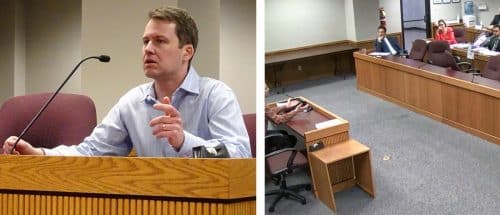
Brian Kaylor testifying in Missouri hearings against “Bible literacy” bills.
Third, we cannot separate the historical and literary elements of the Bible from its supernatural claims. The resurrection of Jesus features heavily in our cultural imagery because of its widespread belief among Christians. How can a course consider the Bible’s impact without talking about the resurrection? If taught as a supernatural act, that would be unconstitutional. But equally problematic would be to undermine the historicity of the resurrection. We can already imagine the outrage and the headlines that will emerge when the views of the teacher come into conflict with the convictions of students and parents.
That gets us to the heart of the issue: The Bible cannot be reduced to an elective social studies class. Yes, this collection of religious texts has impacted literature, politics, history, culture, and so much more. But the reason for its influence is due to people’s belief in what the Bible reveals. This is not Moby Dick or A Tale of Two Cities. The Bible is not influential because it is great literature but because so many people believe it is the word of God.
That is certainly our belief. The Bible is the foundational text of our faith. It is how we learn about God. It teaches us what it means to follow the Lord’s commands and worship our Creator. This book is inherently religious and pretending otherwise is foolish. Stripping away its sacredness under the pretext of treating this text as just good literature is to profane the Bible.
We need the state to teach our young sons reading, writing, and arithmetic. It would be nice if they could also cover basic computer science, critical reasoning, foreign languages, the arts, and a few vocational skills. We neither want nor trust the government to educate them about the Bible. That’s the job of our churches and families.
We need state lawmakers to stop failing this basic test of religious and constitutional logic.
As a public witness,
Brian Kaylor & Beau Underwood

